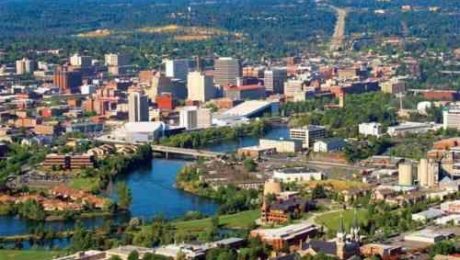By Paula Jensen
My husband is a mechanic. The tools of his trade are important to his work. He has a large toolbox with many drawers lined in soft black padding. His tools lay clean and organized inside each drawer for easy access when he needs the right tool for a job. Yet, when things get busy tools don’t get wiped clean, and they don’t get put back into that organized toolbox. This is when frustration levels rise, every job gets harder, and jobs take longer because he’s looking everywhere for the right tool.
Like a mechanic needs easy access to the right tools, our local community economic development (CED) organizations need easy access to the right tools — like public policy. In most rural communities, the development organization is the one group responding to the local needs that neither the market economy nor government is fully satisfying. These development organizations are working mostly alone to create solutions for housing, daycare, business retention and expansion, workforce issues, leadership development, and other quality of life issues. One organization cannot effectively tackle all these local issues alone. If the role of public policy is not in place to support development, then local frustration levels rise, every project gets harder to do, and progress takes longer because development leaders can’t grab the right tool from the toolbox.
Nine components of community and economic development
I was community coaching in a small town recently with twelve local leaders. This group represented city council members, county commissioners, and the economic development board of directors. We were mapping out their community and economic development model.
This model included the components of:
- business attraction
- existing business
- entrepreneurship
- workforce/education
- infrastructure
- quality of life
- leadership development
- storytelling/branding
- role of public policy
As each person was journaling their lists of activities in the nine areas, the mayor asked me for an example under the column labeled, “Role of Public Policy”. To prompt his brainstorming, I asked, “To support community economic development, have you hired a code enforcement officer or implemented the Municipal Gross Receipts Tax?”
As we worked together that evening, the group named two activities under the role of public policy – 1) Implementing Zoning and 2) Code Enforcement. Those are both good supporting public policies. Yet, as I looked over their collective work, it concerned me that a room with many elected officials could only name two public policies to support development. In that moment the story I told myself was, elected officials don’t know their role in public policy when it comes to supporting development.
So, what’s missing that could help elected officials connect the dots between the role of public policy and community economic development?
Goals of community development
A first step toward connecting those dots may be to define and understand development in your community. In addition to the nine components of the development model I listed above, below are a few general goals of any typical development organization:
Goal 1. Building Greater Community Capacity and Quality of Life
Goal 2. Nurturing Pride, Self-Reliance, and Leadership
Goal 3. Enhancing Skills and Attracting a Quality Workforce
Goal 4. Developing Businesses that are Responsive to Social and Economic Needs
Goal 5. Fostering Balanced, Fair, and Sustainable Economic Development
Example public policies to support community economic development
A next step is to explore public policies other communities are implementing to achieve their goals. Some examples of existing policies include:
- Investing in workforce attraction/retention incentives
- Prioritizing financial investments for paid staff of local housing, chamber, and economic development organizations, along with joint agreements on desired impacts
- Implementing a city sales tax, Municipal Gross Receipts Tax or lodging tax
- Implementing discretionary tax formulas to support housing improvements and business development
- Implementing local Main Street beautification and façade programs
- Creating an ecosystem of supporting local business to increase local sales tax
- Investing in quality-of-life and recreational amenities
- Utilizing Tax Increment Financing
- Prioritizing Planning & Zoning
- Owning or supplementing local daycare facilities.
Together, elected officials and economic development leaders can connect the dots between the role of public policy and community economic development by visioning for the future, naming the local needs, setting some goals, and innovatively developing public policy as a tool to create a thriving rural community.
















